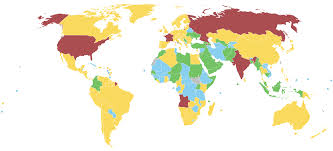Exploring Armenia: A Land of Heritage and Change

Introduction
Armenia, located in the South Caucasus region, holds a significant place in global history and culture. As one of the first countries to adopt Christianity as its state religion in the early 4th century, Armenia boasts a rich cultural heritage evident in its ancient churches and vibrant traditions. Its geopolitical position, nestled between Asia and Europe, makes it a focal point of interest amid ongoing regional tensions and international diplomacy.
Current Events in Armenia
In recent months, Armenia has been at the centre of international discussions, particularly following the end of the conflict with Azerbaijan over Nagorno-Karabakh. In September, thousands of ethnic Armenians fled to Armenia following a military operation by Azerbaijan, seeking refuge from reported human rights abuses. This influx has drawn international attention and calls for humanitarian assistance. The plight of these refugees has spurred protests within Armenia, as citizens express solidarity and urge their government to take action.
Furthermore, Armenia’s relationship with neighbouring countries has been evolving. In October, Armenia signed a historic deal with the EU, aiming to strengthen economic ties and foster stability. This agreement may signify a shift towards closer Western alignment while balancing its historical ties with Russia, which has traditionally been its ally.
Armenia’s Cultural Significance
Beyond politics, Armenia is renowned for its rich folklore, music, and art. The country is home to numerous UNESCO World Heritage Sites, including the ancient monasteries of Haghpat and Sanahin, which embody Armenian architecture and spiritual life. The preservation of the Armenian language and the popularity of traditional music are testaments to the nation’s resilience in maintaining its cultural identity amidst external pressures.
Conclusion: Significance for Readers
As Armenia continues to navigate its complex geopolitical landscape, the nation’s rich cultural heritage and ongoing humanitarian issues present both challenges and opportunities for the international community. Understanding Armenia’s historical context and contemporary struggles is crucial for fostering informed discussions about regional security and human rights. The ongoing developments in Armenia underline the need for global cooperation, particularly as the country attempts to chart a path toward peace and stability while preserving its cultural legacy.








